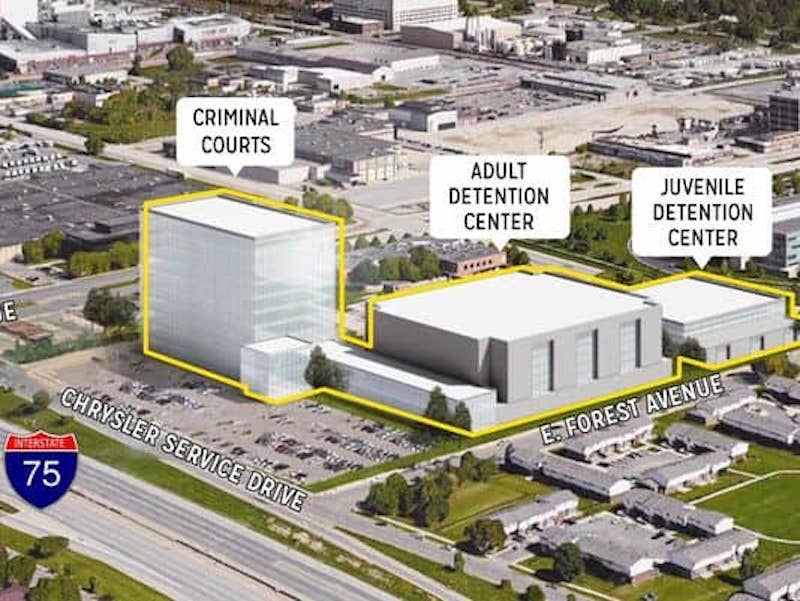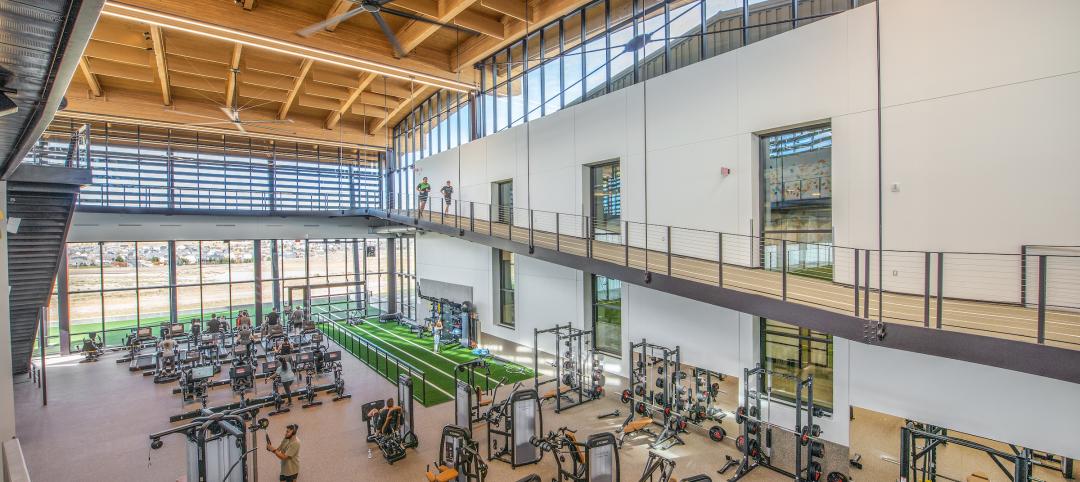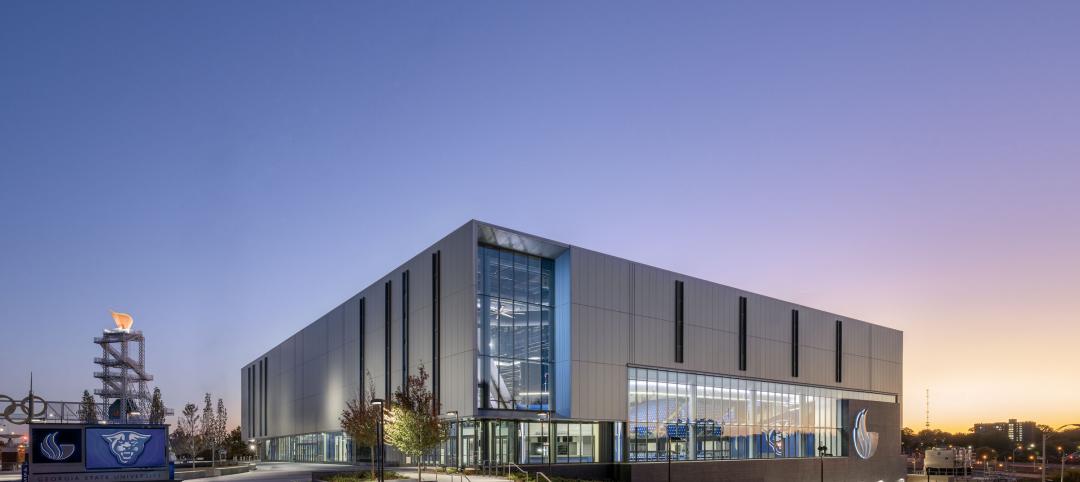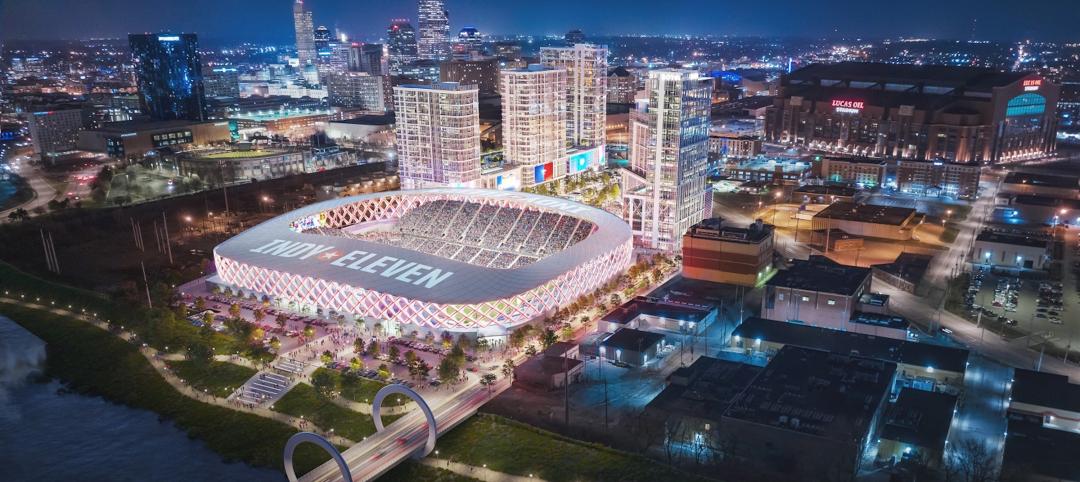Rock Ventures LLC, the investment firm through which Quicken Loans’ founder Dan Gilbert has been revitalizing Detroit’s business and real estate landscape, wants to develop a $1 billion commercial project that would include a 23,000-seat Major League soccer stadium in downtown Detroit, in partnership with Platinum Equity’s Tom Gores, who owns the Detroit Pistons NBA franchise.
To get the land it covets for this project, Rock Ventures wants take ownership of the Wayne County jail site on Gratiot Avenue. In exchange for that transfer, Rock Ventures has offered to spend $120 million of its own money to construct a new $420 million consolidated criminal justice center on a separate site.
Rock Ventures is also asking the county for an “operational savings credit” to cover the projected efficiencies realized on the new site, for which the investment firm would assume all costs and financial risks.
MLive.com reports that the proposed site for this criminal justice center would be located about 1.5 miles from the existing jail site, at East Forest Avenue east of Interstate 75. The proposed complex would include a 1,632-bed adult facility and a 160-bed juvenile detention center, and a new criminal courthouse with 29 courtrooms. Nearly 400 beds could be added to the jail if the county kicks in another $40 million.
According to the Detroit News, Rock Ventures’ submitted its proposal—developed with AEC firms HOK and Barton Malow—just days before the county’s Feb. 10 deadline to move ahead with efforts to restart construction on the abandoned Gratiot jail site. However, only one firm, Chicago-based Walsh Construction, had responded to the county’s request for proposals.
Gilbert has been pursuing the Gratiot Avenue site for more than three years. His original plans were to turn the site into an entertainment complex that would create 5,500 jobs.
Construction of the 2,000-cell jail on the Gratiot Avenue site—for which the county has already spent about $150 million—halted half finished in June 2013 after revelations of potentially tens of millions of dollars in cost overruns. Litigation initiated by the Detroit Free Press forced the county to release an August 2013 draft report of an audit—which had been kept from county commissioners and members of the Wayne County Building Authority— that projected the new jail would run at least $41 million over its $300 million budget. The draft report showed that county officials had known about the potential overruns since 2011.
If the county accepts Rock Ventures’ proposal, the cost of the new soccer stadium, along with a hotel, office buildings and a residential tower, is estimated in the $225 million to $250 million range.
Related Stories
Architects | Jun 6, 2023
Taking storytelling to a new level in building design, with Gensler's Bob Weis and Andy Cohen
Bob Weis, formerly the head of Disney Imagineering, was recently hired by Gensler as its Global Immersive Experience Design Leader. He joins the firm's co-CEO Andy Cohen to discuss how Gensler will focus on storytelling to connect people to its projects.
Sports and Recreational Facilities | May 30, 2023
How design supports a more holistic approach to training
For today’s college athletes, training is no longer about cramming team practices and weight lifting sessions in between classes.
Arenas | May 18, 2023
How can we reimagine live sports experiences?
A Gensler survey finds what sports fans' experiences have been like returning to arenas, and their expectations going forward.
Digital Twin | May 8, 2023
What AEC professionals should know about digital twins
A growing number of AEC firms and building owners are finding value in implementing digital twins to unify design, construction, and operational data.
Collegiate Stadiums | Apr 4, 2023
6 examples of modern college training facilities
HOK discusses the future of college training facilities, with six design takeaways derived from a discussion between Dan Radakovich, Director of Athletics at the University of Miami, and Trevor Bechtold, Director, HOK’s Sports + Recreation + Entertainment practice.
Sports and Recreational Facilities | Mar 30, 2023
New University of St. Thomas sports arena will support school's move to Division I athletics
The University of St. Thomas in Saint Paul, Minn., last year became the first Division III institution in the modern NCAA to transition directly to Division I. Plans for a new multipurpose sports arena on campus will support that move.
Sports and Recreational Facilities | Mar 17, 2023
Aurora, Colo., recreation center features city’s first indoor field house, unobstructed views of the Rocky Mountains
In January, design firm Populous and the City of Aurora, Colo. marked the opening of the Southeast Aurora Recreation Center and Fieldhouse. The 77,000-sf facility draws design inspiration from the nearby Rocky Mountains. With natural Douglas Fir structure and decking, the building aims to mimic the geography of a canyon.
Sports and Recreational Facilities | Mar 15, 2023
Georgia State University Convocation Center revitalizes long-neglected Atlanta neighborhood
Georgia State University’s new Convocation Center doubles the arena it replaces and is expected to give a shot in the arm to a long-neglected Atlanta neighborhood. The new 200,000 sf multi-use venue in the Summerhill area of Atlanta is the new home for the university’s men’s and women’s basketball teams and will also be used for large-scale academic and community events.
Sports and Recreational Facilities | Feb 27, 2023
New 20,000-seat soccer stadium will anchor neighborhood development in Indianapolis
A new 20,000-seat soccer stadium for United Soccer League’s Indy Eleven will be the centerpiece of a major neighborhood development in Indianapolis. The development will transform the southwest quadrant of downtown Indianapolis by adding more than 600 apartments, 205,000 sf of office space, 197,000 sf for retail space and restaurants, parking garages, a hotel, and public plazas with green space.
Arenas | Feb 23, 2023
Using data to design the sports venue of the future
Former video game developer Abe Stein and HOK's Bill Johnson discuss how to use data to design stadiums and arenas that keep fans engaged and eager to return.

















